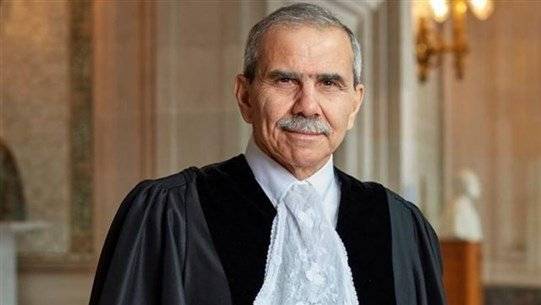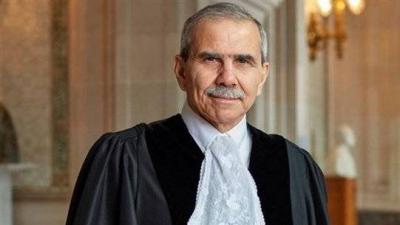Just days before the mandatory parliamentary consultations set for this Thursday to name a new Lebanese government chief, the distribution of parliamentary votes remains unclear, especially amid the confusion experienced by opposition parties, which are still striving to agree on a competing candidate to caretaker Prime Minister Najib Mikati, who is currently the favored candidate. The name of former ambassador Nawaf Salam has resurfaced, following the announcement by the "Progressive Party," represented in Parliament by MPs Mark Dowe and Najat Saliba, that they support Salam. This comes ahead of the 13 "Change MPs" (including Dowe and Saliba) reaching an agreement on their candidate, raising questions, especially given reports of disagreement and division among them regarding this decision, despite most of them backing Salam. Change MP Rami Funj mentioned in a television interview: "We are in continuous contact as a change bloc, and we will finalize our position in the coming hours, united and supportive, and we may lean towards nominating Nawaf Salam."
The "Progressive Party" announced in a statement its nomination of Nawaf Salam for the premiership, citing his integrity, transparency, and requisite ability to work and confront challenges, stating that he does not have interests tied to the network of sectarianism and corruption. The "Lebanese Forces" party seems to be aligned with this direction, especially if it is collectively supported by opposition and independent MPs, as an MP source in the "Forces" mentioned to "Asharq Al-Awsat", clarifying that "communications are ongoing, but what matters to us is agreeing on a single name that is endorsed by the opposition and change majority; thus, if a candidate receives support from this majority, we will definitely support him, with Salam being one of the proposed names, and our bloc will make the final decision regarding this in a meeting tomorrow."
Meanwhile, reports indicate that the Progressive Socialist Party will support the stance of opposition and change parties if they agree on a single candidate; otherwise, it might reconsider naming Mikati if consensus fails. MP Hadi Abu Al-Hassan from the "Socialist" commented on this proposal in a television interview, stating: "The change forces have not announced a unified candidate. We hope to meet with them. We were the first to name Nawaf Salam, but we do not want to propose a folkloric or populist name; we want the nomination to be substantial and impactful that leads us to results." He highlighted that the Democratic Gathering would hold meetings today and affirmed, "Nothing is decided yet regarding the naming of the prime minister, and communications with allies may require discussions until the last quarter of an hour."
In response to a question about whether the discord between President Najib Mikati and the "Free Patriotic Movement," led by MP Gebran Bassil, would lead to his re-nomination, Abu Al-Hassan stated that "the matter is related to commitments and the program, while not excluding the possibility that it could be a negotiating game by the Movement." Regarding participation in the government, he indicated that "the Democratic Gathering will not participate directly, but the Druze community will be represented based on constitutional and national requirements."
While awaiting the outcome of negotiations taking place through various channels, the political bureau of the "Amal Movement" in its regular meeting called for "forming a government capable of facing the challenges and crises burdening all Lebanese" and urged not to waste the time that Lebanon cannot afford, nor to enter into labyrinths of procrastination and counterconditions in the remaining time before the presidential election, noting that the country can no longer afford to lose any opportunity. It also urged all active political parties to "set a clear agenda for the upcoming phase, focusing on what we want for the new government, rather than each party seeking its own interests in any government, especially since the severely strained social situation and the economic collapse affecting all sectors necessitate an acceleration of a serious governmental work plan that outlines a clear roadmap for necessary internal reforms and those awaited from the international community, and quickly revisits and officially approves the economic recovery plan to allow Lebanon to rise from its hardships and preserve people's rights."




